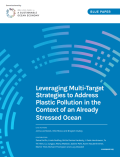
This paper examines the leakage of plastics and other pollutants into the ocean and the resulting impacts on marine ecosystems, human health, and the economy. The paper comments on the kind of regenerative global industry that needs to be built as well as integrated solutions to reduce all pollutants to the ocean.
This paper proposes seven holistic approaches for the reduction of pollutants in the ocean:
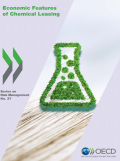
This study presents a review of the literature on the economic features of the chemical leasing and of similar business models, focusing on the drivers and barriers and comparing their functioning to traditional contracts.
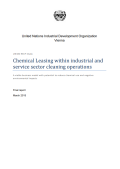
This report presents key findings on chemical leasing—a business model that decouples the supplier’s income from volume sold, as the customer pays for the results the chemical use generates, not the volume of chemicals used.
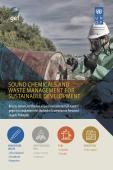
This document describes results, lessons, and human impact from selected GEF-funded projects to implement the Stockholm Convention on Persistent Organic Pollutants (POPs) and the Minamata Convention on Mercury.
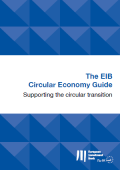
This guide provides information about circular economy solutions as well as EIB's lending and advisory activities in this field.
